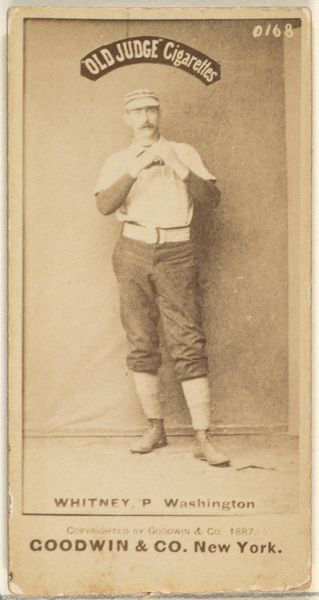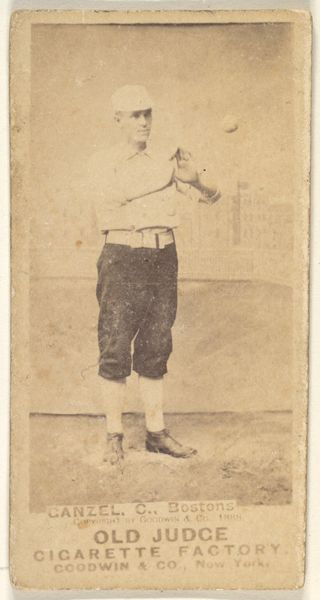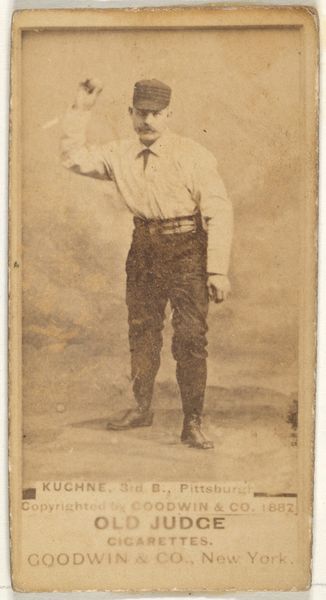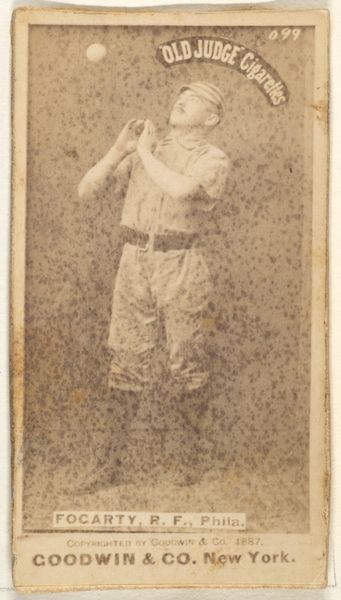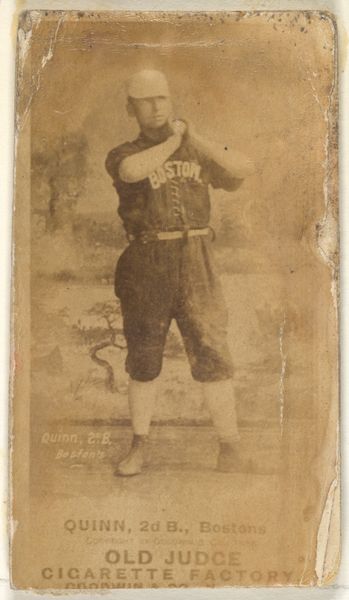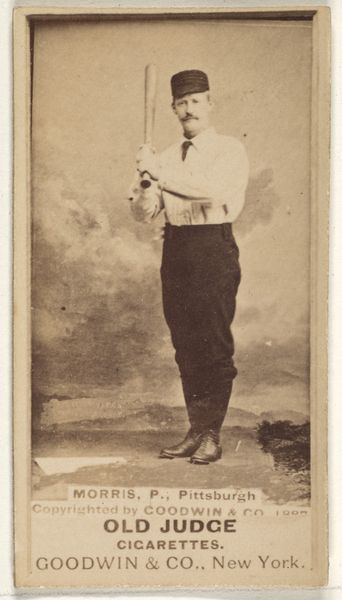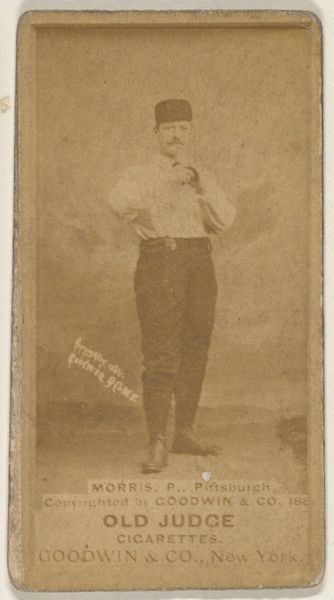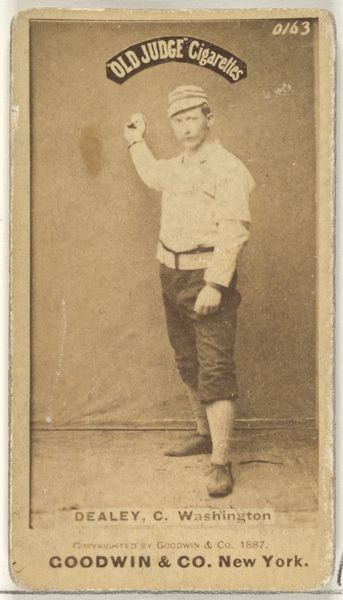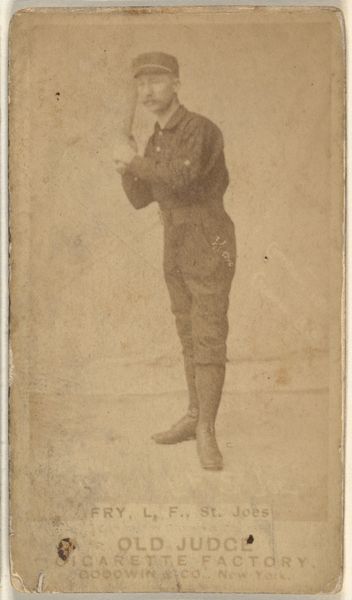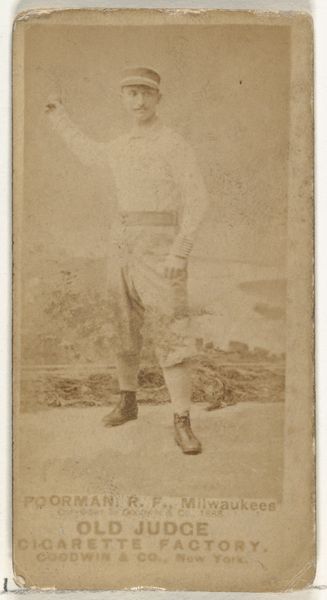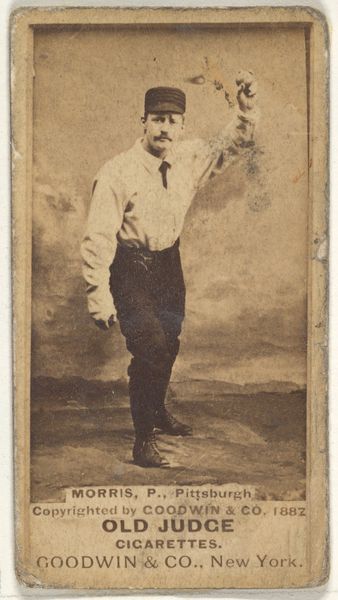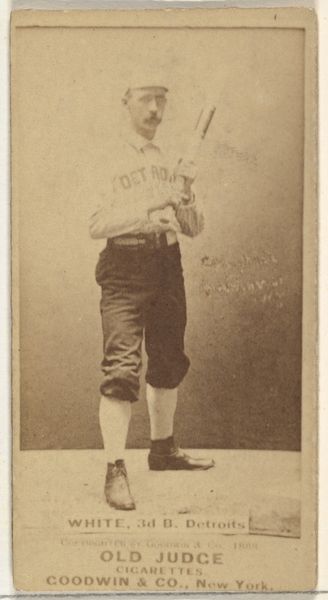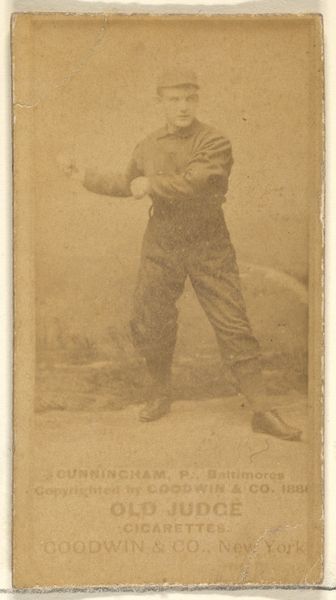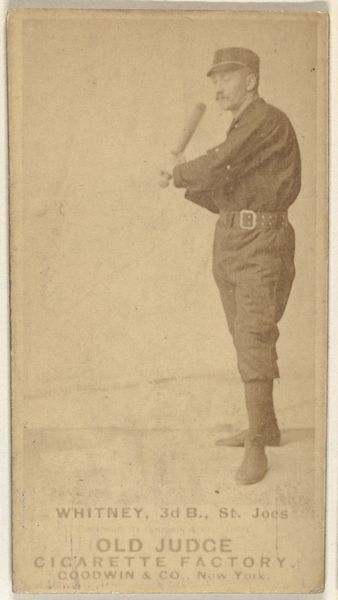
William "Bill" Frederick Krieg, 1st Base, Washington Nationals, from the Old Judge series (N172) for Old Judge Cigarettes 1887
0:00
0:00
drawing, print, photography
#
portrait
#
drawing
#
still-life-photography
# print
#
baseball
#
photography
#
men
Dimensions: sheet: 2 11/16 x 1 3/8 in. (6.9 x 3.5 cm)
Copyright: Public Domain
Curator: This is a baseball card from 1887, part of the "Old Judge" series by Goodwin & Company, featuring William "Bill" Frederick Krieg, a first baseman for the Washington Nationals. These cards were included in packs of Old Judge Cigarettes. Editor: There's something inherently melancholic about it. The sepia tones, the worn texture—it evokes a real sense of nostalgia, of looking back at a time that feels very distant. Curator: Absolutely. The cards functioned as promotional items but quickly became collectible items, demonstrating how consumer culture intertwines with leisure and identity formation. The pose of Krieg feels deliberate, even stoic. Editor: It’s interesting to consider how photography, particularly in this format, shaped the perception of athletes and, more broadly, masculinity at the time. It seems very controlled. He appears poised, as if permanently ready. Is that an affectation or an insight into what he was like? Curator: In baseball's early years, it became essential to showcase its players' legitimacy and public appeal, something facilitated through photographs reproduced via mass production for a wider audience. The seriousness of his gaze is partly due to longer exposure times in older photography techniques and suggests a shift from amateur to professional ideals. Editor: It's also striking how this object—a cigarette card— connects something as seemingly wholesome as baseball with the then socially acceptable, and heavily marketed, tobacco industry. The layering of advertising, sport, and celebrity says a lot about the economic engines at play during the late 19th century. It almost gives another layer of understanding to labor relationships. Curator: Precisely, advertising revenue transformed these forms of documentation into commodities and cemented the legacy of players like Krieg, albeit now attached to the commercial branding. These cards also demonstrate how visual culture extends its reach into various socio-economic strata. Editor: Looking at this, I am curious to explore how baseball has been tied historically to social mobility and, conversely, to the maintenance of specific social hierarchies within American culture, both of which can start with something as apparently inconsequential as a cigarette card. Curator: It’s a reminder that even simple things such as promotional cards reflect and perpetuate deeper narratives. It underlines the critical nature of our work when trying to contextualize historical artifacts. Editor: A wonderful piece that manages to touch on sports history, corporate strategies, and social structures. An unassuming object, rich with layers.
Comments
No comments
Be the first to comment and join the conversation on the ultimate creative platform.
